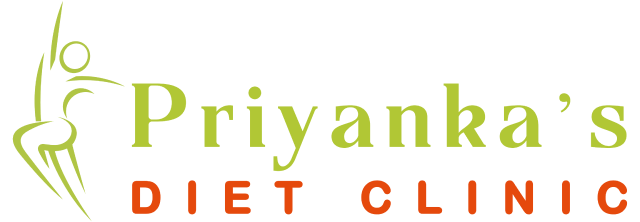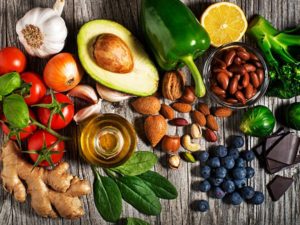Diet Plan For Hyperlipidemia – Stop Googling “Diet Plan For Hyperlipidemia” now! because you are already on the right platform. Cholesterol is a particle in the blood. This is important for all humans and animals need to live. Hyperlipidemia (high cholesterol) is a lot of lipids or fats in your blood and this raises the risk of heart attack and strokes the reason is that blood can’t flow through your arteries easily. If you are adding healthy foods and exercise then this can lower your cholesterol.

Hyperlipidemia is also known as dyslipidemia or high cholesterol. If you have Hyperlipidemia then it means you have too many lipids (fats) in your blood. Your liver produces cholesterol to aid you digest food as well as creates things like hormones. But if you also eat cholesterol through foods from the meat or dairy aisles. Along with this, your liver makes more cholesterol as you need, so the cholesterol in foods you eat that are extra. If you are not managed then it can be very very serious and it can lead to a stroke and heart attack. Hyperlipidemia deprives your brain and heart of the nutrients and oxygen they need to function. This can create the complication including:
- Heart attack
- Stroke
- Coronary heart disease
- Carotid artery disease
- Sudden cardiac arrest
- Peripheral artery disease
- Microvascular disease
Healthy Foods To Lower The Cholesterol Level
- Beans and lentils
- Fish, especially salmon
- Olive oil
- Avocados
- Nuts and seeds, including chia and flax
- Natural peanut butter or any nut butter
- Whole grains (oatmeal, quinoa, brown rice, or whole-wheat bread)
- Fruit, (especially high-fiber fruits like berries, apples, and pears)
- Vegetables (dark leafy greens and cruciferous vegetables like Brussels sprouts, broccoli, as well as cauliflower)
- Sweet potatoes and winter squash
Foods That You Should Avoid If You Have Hyperlipidemia
- Red Meat – includes pork, beef, and lamb or processed meats like sausage
- Full-Fat Dairy – like cream, whole milk, and butter
- Baked goods and sweets
- Fried foods
- Tropical oils like palm oil and coconut oil
- Butter
Diet Plan For Hyperlipidemia
Day-1
Breakfast – 1/2 cup Oats in 1 glass of milk
Morning Snack – 1 medium size guava
Lunch – 4 chapathi+1/2 cup chana dal+1/2 cup mooli methi sabzi or 1 glass buttermilk
Evening Snack – 1 cup boiled bengalgram with lemon or 1 cup green tea
Dinner – 3 chapathi+ 1/2 cup bhindi sabji and 1 cup vegetable salad
Day-2
Breakfast – 4 Idly+ 1/2 cup sambhar+1 tsp coconut chutney or 1 glass milk/ 1 cup tea
Morning Snack – 1 medium size apple
Lunch – 1 cup rice+2 chapathi+fish (100gm) curry+cabbage and green peas sabji
Evening Snack – 1 cup boiled green gram sprouts with lemon or 1 cup green tea
Dinner – 3 chapathi+1/2 cup cauliflower sabji+1/2 cup vegetable salad
3-Day
Breakfast – 3 dosa+1/2 cup sambhar+1tsp methi chutney+1 glass milk(toned)/ 1 cup tea
Morning Snack – 1 medium size pear
Lunch – 1 cup rice+2 chapathi+aloo brinjal sabji+1/2 cup tomato dal+1 glass buttermilk
Evening Snack – 3 Cracker biscuits+ 1 cup tea/milk(toned)
Dinner – 3 chapati (multigrain – wheat, jowar, bajra)+lauki methi sabji+1/2 cup vegetable salad
Day-4
Breakfast – 1 cup broken wheat upma with vegetables+1 glass milk/1 cup tea(toned)
Morning Snack – 100gm musk melon
Lunch – 4 chapathi+1 portion(100gm) grilled/stewed fish+1/2 cup rajmah curry
Evening Snack – 1/2 cup Sweet potato salad+ 1 cup green tea
Dinner – 3 chapathi+ 1/2 cup ridge gourd (thori) sabji+1/2 cup vegetable salad
Day-5
Breakfast – 1 cup roasted oats upma with vegetables+1 glass milk/1 cup tea(toned)
Morning Snack – 1 banana
Lunch – 4 chapathi+1/2 cup french beans curry+1/2 cup colocasia(arbi) sabji+ 1 glass buttermilk
Evening Snack – 1 bowl pop corn+1 cup tea/milk(toned)
Dinner – 3 chapathi+1/2 cup palak sabji+1/2 cup vegetable salad
6-Day
Breakfast – Vegetable sandwich with 4 whole wheat bread slices+cucumber,tomato, onion,spinach/lettuce+1 glass milk(toned)/ 1 cup tea
Morning Snack – 1 wedge(100gm) watermelon
Lunch – 1 cup rice+2 chapathi+1/2 cup skin out chicken(100gm) curry+1/2 cup ivy gourd(parmal) sabji+1 glass buttermilk
Evening Snack – Avocado(50gm) whole wheat bread(3 slices) sandwich+ 1 cup green tea
Dinner – 3 chapathi(multigrain-wheat;jowar;bajra)+1/2 cup tinda sabji+ 1/2 cup vegetable salad
Day-7
Breakfast – 2 paratha(aloo/gobhi/methi) with 2 tsp green chutney+1 glass milk(toned)/ 1 cup tea
Morning Snack – 100gm pomegranate
Lunch – 4 chapathi+1/2 cup cluster beans curry+1/2 cup capsicum sabji+ 1 glass buttermilk
Evening Snack – 1 small fistful (40 gm) of peanuts, almonds,walnuts+1 cup of green tea
Dinner – 3 chapathi+1/2 cup raw banana sabji+1/2 cup vegetable salad
Conclusion
Hope you get all the information about Diet Plan For Hyperlipidemia properly. We all know our body needs some cholesterol to work in a proper way but if your cholesterol is high in your blood then this can attach to the walls of your arteries as well as narrow or even block them. Also, this can create the risk of coronary artery disease and other heart diseases. If you have Hyperlipidemia then following our diet plan properly that can help you lower the Hyperlipidemia. Click Here!!
Frequently Asked Questions (FAQs)
Question 1. What causes cholesterol to get high?
Answer. The following several hyperlipidemia causes include;
- Smoking
- Drinking a lot of alcohol
- Eating foods that have plenty of trans fats or saturated fats
- Sitting too much instead of being active
- Being stressed
- Being overweight
Question 2. What are the risks of Hyperlipidemia?
Answer. There are lots of things that can put a higher risk of Hyperlipidemia including:
- Firstly, having a family history of high cholesterol
- Not eating a nutritious diet
- Having hypothyroidism
- Drinking too much alcohol
- Having obesity
- Smoking
- Having diabetes
Question 3. How we can treat Hyperlipidemia?
Answer. Including:
- Exercising
- Quitting smoking
- Sleep at least seven hours each night
- Keep your stress level well-managed
- Eating Healthier foods
- Limit the alcohol that you drink
- Losing your few pounds






